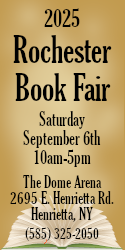Lifetime Sentences
Since my first week of teaching in 1968 I have known that rigid lesson plans and firm goals are pursued, in English classrooms at least, at the expense of lively, vibrant, unforeseeable things that come up unexpectedly along the way. Some of my best and most memorable classes in thirty-six years have been serious digressions—my detractors would say irresponsible digressions. Students have a charming, enchanting, even inspiring way of learning what you had no intention of teaching, and of telling you about it years later. B.F. Skinner mentions this phenomenon in Walden II, where he regrets that former students recall his attitude toward chocolate sodas and his amusing incident on a Spanish street car better than his psychology lessons; and it is true that the notebooks of my favorite students and biggest fans over the years are laden with jokes and anecdotes as well as—or more than— learned inquiries into synaesthesia, syllepsis, antonomasia, and the structure of light imagery in The Faerie Queene. In fact, this nugget from Walden II, which I haven’t read since I was in college, came to me just recently from a student who uncannily recognized in it a comment on my style of teaching in general, about which I am glad to say she feels positive. I trust her evidence that my governing precept holds true.
It certainly did last week. Preparatory to a discussion about irony, how it works, how we recognize it, and—most important—what it means not to recognize it, I had written on the blackboard (yes, thank goodness, my classroom still has one) the first sentence of Pride and Prejudice:“It is a truth universally acknowledged that a single man in possession of a good fortune must be in want of a wife.” Then (my usual way of trying to start something) I asked, “What’s the first thing you notice about this sentence?” “Well,” said one young woman, with no hesitation at all, “You’ve left out the commas.” “Not likely” I said, having originated this exercise about thirty years ago and not having looked at that sentence since; but I opened the book on my desk and checked. No commas. “Our edition has commas,” she said. Sure enough: “It is a truth universally acknowledged, that a single man in possession of a good fortune, must be in want of a wife.” Marvelous! A teacher’s dream again came true, as I saw the next forty minutes beginning to open petal by petal like some dewy flower greeting the morning sun (isn’t that beautiful?) and knocking into a cocked hat (whatever that may be) what I had intended to do with that class…for the sake of a discussion of grammar! Not troubling to conceal my happiness, I said: “Go on.” “Well,” she said (this is English 3A, an Advanced Placement course for 11th-graders), “the second comma is just plain wrong, isn’t it?” “Why, or how?” “It separates a verb from its subject for no reason.” “Think of a reason.” Pause. “It sounds all right.” So then, with better than average contributions from all twelve students, we parsed the sentence, eventually agreeing that that a single man in possession of a good fortune must be in want of a wife is a noun clause and the grammatical subject of the sentence (or, possibly, a predicate nominative), and that the comma has no grammatical business being there; that is is the main verb in the sentence, and that therefore a truth universally acknowledged must be a predicate nominative (or, possibly, the grammatical subject, depending on what you call the noun clause: grammatically and syntactically they are interchangeable); and that the comma after acknowledged is less a point of grammar than of euphony: it’s a natural pause that helps the sentence “sound all right.” That left us with it, and a minute of “Hangman” came up with the word expletive. “Isn’t that like when you say ‘Shit!’?” inquired another young woman, perhaps having learned someplace about the Nixon tapes. Yes. Same idea. It’s a place-holder, a stop-gap, a bouche-trou until you get to the grammatical subject, which often will be a noun clause: “It was good luck that I had my umbrella.” Not a pronoun, in that example…though if you dropped the noun clause it would be a pronoun as grammatical subject, albeit a vague one. We were almost finished: two minutes of pedantry, to the effect that punctuation rules as we know them (or, perhaps, don’t know them) were not standards until well into the 19th Century and differ still from one side of the Atlantic to the other; that the edition I had checked my faultless memory against is a Signet paperback thirty years old, whereas theirs is a Penguin Classic paperback new last year: the editor of the Signet edition obviously cleaned up the earlier punctuation to avoid confusing the illiterates of my own generation. Editors now, it seems, have higher hopes. I mentioned to the class that just a day ago I had seen a first edition of Jane Austen’s Emma offered by Jonkers Rare Books, Henley-on-Thames (where my school is famous for rowing) at $41,000.00. It would be nice (another expletive, here followed by an infinitive/noun as grammatical subject), I reflected aloud, to have a first edition of Pride and Prejudice, and play this game all the way through it…see exactly what Jane Austen saw in print. (The John Adams house in Quincy has, as I recall, the first edition, in three volumes, of Pride and Prejudice, but getting through the chicken-wire with which the bookcase is faced daunts me.) “You didn’t buy the Emma?” asked one of these superb students—her father is the Head of Modern Language here. Irony. But what about irony in this sentence? “Oh,” she said, “it says exactly the opposite of what Jane Austen thinks.” “What if you didn’t see that?” “You’d have to be a fool,” she said. Then the period ended. Redeemed by the bell, I was. It was one of my happiest classes in a third of a century. But if I had rejected that initial question to cling to the wreckage of my original plan, I might possibly have laid a pedagogical egg and tried to launch a lead balloon stupider than the stupidest joke I have ever imparted to a class. Possibly; but certainly something valuable would have been lost.
“Call me Ishmael.” (There’s an immortal Gary Larson “Far Side” drawing, Melville from the back with his head in his hands, all these scratched-out sheets tossed aside, rejected: “Call me Bill,” “Call me Bob,” “Call me Warren.”) I put “Call me Ishmael” on the blackboard on the first day of my Winter Term Moby Dick Senior Elective course, thinking to devote the class period to discussion of the first-person narrative, the persona, the potential for conflict between author and persona, the possibility that the author of this stupendous work may occasionally abandon his persona for his own or even another voice, and the verisimilitude achieved by adopting a persona, with reference to Huckleberry Finn and Nick Carroway, and maybe even to Chaucer’s Narrator, a discernible moron who is not Chaucer himself at all…as most of these students discovered just last year. “What’s the first thing you notice about this sentence?” The reply came immediately from a thoughtful young man: “It sounds like that’s not his real name.” This young man has an exceptionally good ear. His edition of Moby Dick has a foot-note on the biblical Ishmael; and while I had planned a class around the idea that that famous first sentence raises a question of Identity, I had never quite thought of it that way. Call is a funny verb, in England (as here) synonymous with “name,” but in England sometimes without what we hear as the overtone my student caught: “My name’s Annie, but my friends call me Anne” as somebody once said to my sister. Ruth Rendell, the brilliant English novelist whose style and substance I deeply and increasingly revere, drives me crazy over and over by writing variations on the locution “He was called Joe Zilch,” when I want to see “His name was Joe Zilch.” In Road Rage (1974), Chief Inspector Wexford worries about his new grand-daughter’s name Amulet (as who might not?): “Don’t worry,” says Wexford’s wife, Dora: “She’ll be called Amy.” In his gratifying review of my P.G.Wodehouse Quiz Book (The [London] Sunday Telegraph, December 31, 1989), the late Benny Green referred to me as “a teacher of English called Charles Gould.” This publication led a distant relative in San Francisco to write me: “If you are called Charles Gould, what is your name?” (Well, after thirty-two years here, I know pretty well what I’m called by students; and I count myself among the blessed few.) Nowadays, I think this ambiguity escapes the British ear…my samples, of course, being far from a complete or even scientific study, and Ruth Rendell in Road Rage alone challenges me, exasperatingly using the verb both ways; but one hundred and fifty-two years ago, Melville might have had this ambiguity in mind. I don’t know. Certainly the verb in “Call me Ishmael” has overtones that we don’t hear in “His name shall be called Wonderful, Counsellor, the Mighty God, the Everlasting Father, the Prince of Peace.” Or does it? Doesn’t matter. Out of that class we derived a lovely discussion about names, name-calling (“You coprophagous cretin!”), diminutives, eponyms, allusions, and the Imperative Mood that no plan-book could possibly have predicted or—and this is my thesis—insist upon duplicating next year.
“It was the best of times, it was the worst of times.” Perhaps it’s the most famous first sentence in western literature, paradoxical and perennial, and a nice introduction to ambivalence; but Dickens wrote a better one later. One of my recurrent favorite hobby—horses ridden for A.P. classes is that fiction does not contain information, and we must not write about it as if we thought it did. To say that “In Chapter 41 Melville reveals that Ahab is insane” sounds as though Ahab somehow existed independently of Melville, and that Melville saw his task as being to give us this information about him, having kept it to himself for the first forty chapters. Such a focus is nonsensical, but even fine students have trouble seeing why. It helps to ask them what is the only kind of fiction in which things are revealed: eventually somebody usually says “detective stories” (a genre seriously lacking in the experience of most of today’s students); and then, to clinch the thing, I give them the first sentence (and paragraph) of Dickens’s Our Mutual Friend:
In these times of ours, though concerning the exact year there is no need to be precise, a boat of dirty and disreputable appearance, with two figures in it, floated on the Thames, between Southwark Bridge which is of iron, and London Bridge which is of stone, as an autumn evening was closing in.
There is information here, which Dickens deliberately treats as imagistic background to his fiction: no need to be precise about the year or the date or the “figures,” but the information about the bridges, while achieving verisimilitude, ingeniously puts the rest immediately in a fictional world. Students see this distinction instantly (or, sometimes some do); and, setting aside the lyric beauty of this perfectly-balanced sentence and its definably romantic tone, we all agree that the truth of fiction is not derived from information.
Another favorite A.P. writing exercise that I devised about twenty years ago juxtaposes the first paragraph of Chapter I of Rabbit is Rich, by John Updike (1980) and the first paragraph of Chapter I of Babbitt, by Sinclair Lewis (1922), asking the class to show how the two passages are different approaches to the same theme. Here are just the first sentences: “The towers of Zenith aspired above the morning mist; austere towers of steel and cement and limestone, sturdy as cliffs and delicate as silver rods.” And—no need to say which is which: “Out of gas. The fucking world is running out of gas.” Most students sense an irony at once, at the expense of The American Dream; but part of the exercise is to see that form can shape content, and vice-versa, as my own response to my own topic many years ago was intended to demonstrate:
Rabbit
In the twenties, Zenith’s Babbitt
Aspired to be an eighties Rabbit:
The former’s lofty, sober, high romantic style
The latter’s low vernacular, cynically realistic with that
dirty f-word in it must in-fucking-evitably defile.
(That brave locution’s termed tmesis;
I teach it, but it’s not my thesis.)
It just goes to show what can happen
in the space of sixty years:
Civilization progresses from Prohibitionto sixty different beers,
All of them advertised every sixty seconds on the TV
Whose moral values are uncertain,
even though the reception nowadays is bright and clear,
not snowy and hazy and weavy.
What was once The Great American DreamHas now run out of steam.
And what for a moment for Sinclair Lewis’s protagonist
is harmonious and romantic
Is for John Updike’s protagonist merely frantic.
Industrialization
Has run its course, and no matter how fast Rabbit runs,
he can’t outrun stagnation,
Because—and here’s the conclusion
that I hope will make you smile—
Everything depends on style.
Babbitt
To Rabbit Angstrom’s “summer dusty” gaze
The traffic passes “thin,” and “scared,” and “slow,”
Where Babbitt saw “a green and crimson maze”
And people going where they had to go.
His “long sleek” limousine on concrete “fled,”
But not for fear; and workers went on home,
While Rabbit’s truckers shoot each other dead
And “polished steel” is slick Celica chrome.
As citadels and churches once aspired
Clean towers then toward heaven made their thrust;
But Rabbit, young and rich, seems simply tired:
His “morning mist” has turned to summer dust.
Babbitt’s “chorus cheerful as the April dawn”
Falls now on different ears: it is not gone.
For my opinion I have been roundly thumped, especially by academics, but I think that Sinclair Lewis will eventually emerge as a foremost, vital novelist of 20th Century America. First editions in dust wrapper now already fetch something more than the $3.50 I could ill afford that I once lashed out for Work of Art, and my decrepit first editions of Babbitt may keep me lunching out in retirement…if I stay true to the burger and the grilled cheese. John Updike I regard as the foremost writer of our time (but I was recently whacked by an up-town bookseller for saying that in one of my catalogues). In any case, it pleases me still to set a little of Lewis and Updike side by side and help my students—young people learning to read against all of today’s odds and the silly emblandishments we willfully and culpably afford them—glean the amazing genius of each.
The prose of P.G. Wodehouse puts all of this in perspective. Though mocked for saying it, Hilaire Belloc in 1939 described Wodehouse as “the best writer of English now alive.” (“Now alive” seems to me a little redundant—as is “a little redundant”—so who am I to query Hilaire Belloc?) “Into the face of the young man who sat on the terrace of the Hotel Magnifique at Cannes there had crept a look of furtive shame, the shifty, hang-dog look which announces that an Englishman is about to talk French.” This is the first sentence of P.G. Wodehouse’s The Luck of the Bodkins (1935). While I can do very well by Jane Austen, Melville, Twain, and Dickens, I would not attempt to teach this sentence: so doing would be, as somebody once said of criticizing Wodehouse, “like taking a spade to a soufflé.” A joke explained is a joke lost forever, indeed—but I think that truism should not be invoked against my teaching of Jane Austen. We all learned somewhere; and Jane Austen, or Dickens, is as fine a primer for Wodehouse as anybody, probably ultimately more rewarding than Dornford Yates or W.W. Jacobs. But Wodehouse’s perfect sentence is perfectly inexplicable, though it has of course definable elements. It’s dated. It’s probably politically incorrect these days, as Wodehouse meant it to be then. Some might even argue that it’s sexist: why not “the face of the young woman,” or “the face of the young man or woman,” or “the face of the young person,” or simply “the face”? (Such questions are seriously raised these days, Gentle Reader: it’s time to take off the gloves—or get them out of storage!) Two or three words and phrases (furtive, shifty, hang-dog) many students today might not even know.
The construction of the sentence is easily described (in Shakespeare’s infinitive followed by a prepositional phrase) “to tire the hearer with a book of words”: prepositional phrase/prepositional phrase/relative clause containing three prepositional phrases/expletive!/ main verb and grammatical subject/appositive/relative clause/noun clause/prepositional phrase with the final infinitive as an oddity as an adverb modifying the adverbial preposition “about.” Very strange. Wodehouse and Jane Austen would wonder alike—as you may too—at this effusion. From their sacred graves they may cry, “You’re teaching college candidates what we knew when we were about 10?” Well, yes. I was a slow learner too: I had Algebra Problems, but not after I started teaching English.


























